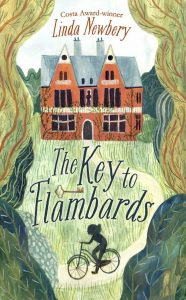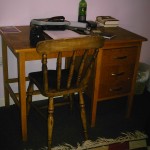
The Key to Flambards
written by Linda Newbery
cover by Katie Harnett
published by David Fickling Books
305 pages in hardback + notes
future classic in sympathy with its heritage Continue reading


The Key to Flambards
written by Linda Newbery
cover by Katie Harnett
published by David Fickling Books
305 pages in hardback + notes
future classic in sympathy with its heritage Continue reading
David Almond’s handshake was warm and strong. He was welcoming and unpretentious though the delegates were quiet and perhaps, like me, thought – that’s David Almond, that is – and I’m here in the same room. Me.
Despite all that hero-worship, he encouraged us to offer own work written oh-so-quickly there and then. He gave off appreciation and candour – even to Mrs Gobby here. In the spirit of that openness, this post will be about those elements of the master-class that really touched me. They are interspersed with some of my images of Newcastle to give you pondering time. The quotations are David’s, the rest is my understanding of what he said.
Protect yourself as a writer.
Wherever you are along the writer’s way, you need things to sustain you. You will feel ‘stupid and insignificant and rejected’. There will be moments of bitterness and frustration. David said ‘create your own mythology’ of how you came to be a writer as something to draw on.
Honour your own work.
Every day find that piece which is you – identify what’s authentic. Where have you connected with the story and transcended the obvious ? What resonates? Get that stuff out and value it – it might be scary but it is truly yours.
Indulge in the process.
Being playful allows you to be all sorts of writers. You never know what sort of writer you are until you become that kind – it’s a sort of acting. When you think about it , as he said, ‘My Name is Mina‘ by David Almond is such a pretence. Playing lets you be ‘alert and relaxed’ without the brain too engaged – the ideal state for writing. He likes to scribble, to jot, to rough things out by hand – it leads to messy notebooks and a sense of freedom. Speed can help too.
Find unexpected opportunities in yourself.
‘Stop fighting yourself – let who you are out’. Such an inspiring thought – that it’s our imperfection that generates creativity. ‘Sometimes the things you draw on you might not want to’ he acknowledged – but he rejected the concept of challenging difficult emotions and experiences.
Writing well comes from every art of you.
It’s not about confronting –
it’s about allowing.
There was more about about turning ‘the mess in your head into straight lines on the paper’ but I want to finish with what seems to me the fundamental notion of writers I admire:
To write a book is an act of great hope.
My hope is that one day a book will come to me as Skellig did – ‘full of energy and grace’. Meanwhile, I will take advice that I have had from many different sources ( David Almond, Greg Mosse, Celia Rees, Linda Newbery…) – write some more.
 The viva voce for my MA in Creative Writing was on Monday. I have passed ( thanks to superb tuition from Greg Mosse) – and I am immediately wondering which subset in the Venn diagram of authors I should inhabit.
The viva voce for my MA in Creative Writing was on Monday. I have passed ( thanks to superb tuition from Greg Mosse) – and I am immediately wondering which subset in the Venn diagram of authors I should inhabit.
I’ve been asked to consider writing for adults. Straight off I flinch at that. I will admit to an entire Harry Ramsden’s on my shoulder about the status of children’s writers. It is compounded of my experience as a teacher that your rank is in direct proportion to the age of the children taught; the same impulse that made the ‘Children’s Writing IS a proper job’ badge sell out so quickly in November 2010, and Martin Amis’s remarks in February about brain injury and writing for children. The subtext is that writing for adults is somehow better, cleverer, more valuable.
Well, I’m with John Dougherty:
Don’t worry Martin. We can’t all be imaginative and versatile.
One of the things I admire most about the literature published for young people is the sheer range and breadth of ideas. Big ideas, written for people who will not be blinded by the effulgent beauty of your prose nor give one microfortnight of attention to reviews by your literary chums.
It is notable that David Almond (a literary hero to me) found a sense of liberation in writing for the young. I am put in mind of this concept:
Australian Aborigines say that the big stories—the stories worth telling and retelling, the ones in which you may find the meaning of your life—are forever stalking the right teller, sniffing and tracking like predators hunting their prey in the bush.
Robert Moss, Dreamgates
Quite simply, I believe young people are more likely to be receptive to the stories following me about and asking to be told than adults. And I bother to write because of my belief in those same young people, and what stories are for.
Every word written, every sentence, every story, no matter how dark the story itself might seem, is an act of optimism and hope, a stay against the forces of destruction.
David Almond, Hans Christian Anderson Award acceptance speech
I’d read Stephen King’s ‘On Writing.’ I knew I had to put my work away in a metaphorical drawer for six weeks.
But it’s hard. You’re locking your baby away. Your baby that you’ve cried over, laughed and smiled at. As a writer you have to be totally involved with your work. If you don’t care, why on earth should your reader?
It is, however, entirely necessary to thrust it on one side. You have to have time to develop the emotional distance so that you can stand back and look at it with a critical eye.
If you’re too close, there’s a terrible temptation to fiddle, to tinker with the little safe bits. If it were a wedding dress you might rearrange a few seed pearls on the bodice- whereas it’s the darts that want seeing to.
Now I have to admit that my MA script is a bit of a meringue at the moment. There are some flounces that it really doesn’t need. They are well constructed but detract from the overall effect. They will have to go because they just don’t suit.
I don’t really like it – but I can see it has to be done. The big cuts have to be done first – no point pinning on the broderie anglaise until the overall form is right, is there? Makes me wish my design and my toile had been better.
Ah well – at least with writing, you can cover the joins.
 This week’s blog is later than usual due to the absolute lack of internet at The Hurst in Shropshire. It was a great week full of workshops and advice from the lovely Linda Newbery and Celia Rees around the creation of YA fiction. One of the great bonuses was the opportunity to have work read and a tutorial from each of these successful writers.
This week’s blog is later than usual due to the absolute lack of internet at The Hurst in Shropshire. It was a great week full of workshops and advice from the lovely Linda Newbery and Celia Rees around the creation of YA fiction. One of the great bonuses was the opportunity to have work read and a tutorial from each of these successful writers.
I had my slot with Linda early on – she was as encouraging and helpful as I expected, and has helped me tighten up the beginning of my Scoresby story. It was much appreciated. The chance to ask for Celia’s expertise came on Friday. Truth told, I was a little anxious about this: she had been quite forthright in her opinions all week and I suspected sh.
Nonetheless, I asked her to give my structure the once over – and she was kind enough to offer to read an extract too. I know from my feedback from Ellen Renner some years ago that honest advice is much more useful than cosy niceness. It might be pleasant to be reassured how good your work is – but it won’t advance your understanding much.
So I went and I listened and I learnt: curiously I was more interested in the things she saw needed changing than praise (though that was relished). The stand-out piece of advice, the rocket that soared over the whole bonfire of pertinent observations was:
Don’t get hung up on the ordinary stuff.
Now the immediate context was the overlong first section of my book. Celia explained that although competently written, elements of this detracted from the true story and should go. They were relatively pedestrian and it was time to murder a few darlings.
But there was more to this. Throughout the week, it became clear that quite a few of us often wrote what we felt we ought to, rather than what truly excited us. When we babbled on about our enthusiasms, or better still, wrote using them, our work came alive. So why on earth weren’t we using our true voices?
So the message I’ve taken, burnt into my understanding like the trail of a sparkler, is that mining the resources inside myself will develop who I am as a writer. I’ve never been what you might call ‘normal’, and it’s always ended in tears when I’ve tried to be. Let others write realistic contemporary urban: I’ll stick to my own variety of weirdness.